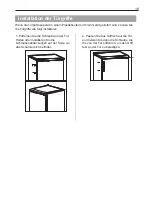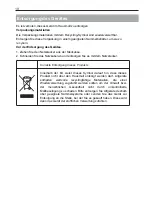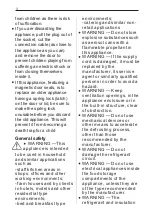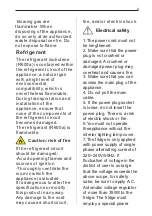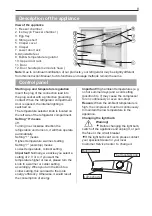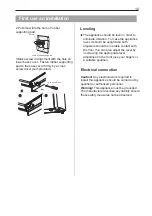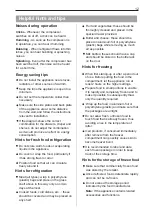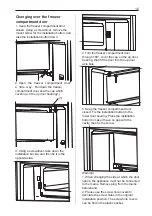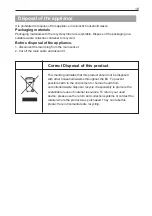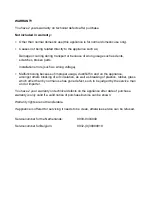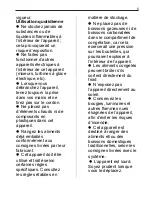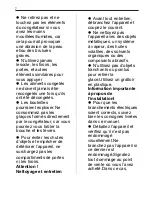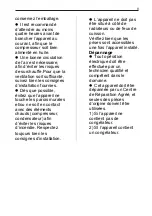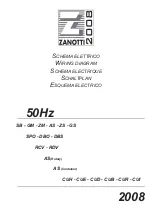
Helpful hints and tips
Noises during operation
Clicks
- Whenever the compressor
switches on of off, a click can be heard.
Humming
- As soon as the compressor is
in operation, you can hear it humming.
Bubbling
- When refrigerant flows into thin
tubes, you can hear bubbling or splashing
noises.
Splashing
- Even after the compressor has
been switched off, this noise can be heard
for a short time.
Energy saving tips
Do not install the appliance near stoves,
radiators or other sources of warmth.
Keep the time the appliance is open to a
minimum.
Do not set the temperature colder than
necessary.
Make sure the side plates and back plate
of the appliance are at some distance
from the wall, and follow the instructions
relevant to installation.
If the diagram shows the correct
combination for the drawers, crisper and
shelves, do not adjust the combination
as it would produce an effect on energy
consumption.
Hints for freezing
When first staring-up or after a period out
of use. Before putting the food in the
compartment, let the appliance run at
least 2 hours on the higher settings.
Prepare food in small portions to enable
it to rapidly and completely frozen and to
make it possible to subsequently thaw
only the quantity required.
‘Wrap up the food in aluminum foil or
polyethylene (plastic) and make sure that
the packages are airtight.
Do not allow fresh, unfrozen food to
touch food that is already frozen, thus
avoiding a rise in the temperature of
latter.
Iced products, if consumed immediately
after removal from the freezer
compartment can possibly cause skin to
become freezer burnt.
It is recommended to label and date
each frozen package in order to keep
track of the storage time.
Hints for the storage of frozen food
Make sure that commercially frozen food
was stored by the retailer.
Once defrosted, foods deteriorate rapidly
and can not be re-frozen.
Do not exceed the storage period
indicated by the food manufacturer.
Note:
If the appliance contains related
accessories and functions.
Hints for fresh food refrigeration
Do not store warm foods or evaporating
liquids in the appliance.
Do cover or wrap the food, particularly if
it has strong flavor or odor.
Position food so that air can circulate
freely around it.
Hints for refrigeration
Meat (all types): wrap in polyethylene
(plastic) bags and place on the glass
shelf above in this way only on or two
days at the most.
Cooked foods, cold dishes, etc...: these
should be covered and may be placed on
any shelf.
Fruit and vegetables: these should be
thoroughly cleaned and placed in the
special drawer provided.
Butter and cheese: these should be
placed in aluminum foil or polyethylene
(plastic) bags while removing as much
air as possible.
Milk bottles: theses should have a cap
and should be stored in the bottle rack
on the door.
12

